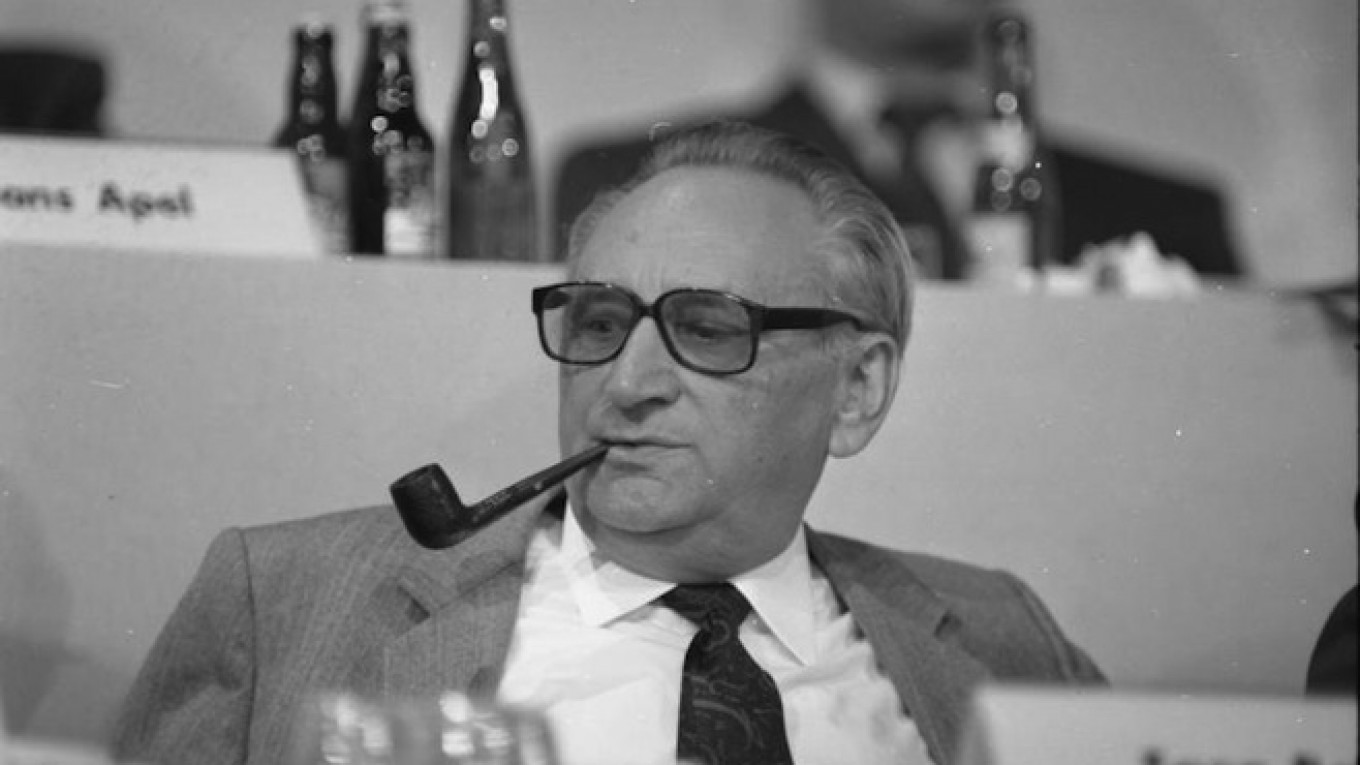BERLIN — Egon Bahr, an eminent German Social Democrat who with late Chancellor Willy Brandt forged a policy of rapprochement with Communist Eastern Europe known as "Ostpolitik" during the Cold War, has died at the age of 93, the party said on Thursday.
A towering figure on Germany's political left, Bahr was closely involved as Brandt's emissary in negotiations on 1970s treaties that fostered detente with Moscow and Warsaw.
He also helped engineer a pioneering Basic Treaty to ease tensions between then-West Germany and Communist East Germany.
"Many people in Germany and Europe are mourning this courageous, upright and great Social Democrat, the architect of German unity, a politician who worked for peace, and a European," said Sigmar Gabriel, current Social Democratic (SPD) chairman and deputy to conservative Chancellor Angela Merkel in Germany's grand coalition.
"The Ostpolitik of Willy Brandt and Egon Bahr was a crucial condition for overcoming the division of Germany and Europe." The Berlin Wall's fall in 1989 led to German reunification.
Born in the small eastern state of Thuringia, he trained for a career in industry. He briefly joined in Nazi Germany's Wehrmacht (armed forces) in World War II, before being released from service because of his Jewish roots.
After the war, Bahr worked as a journalist in West Germany. He joined the SPD in 1956 and became a close confidant of Brandt. He also served under Brandt's SPD successor, Helmut Schmidt, and was an SPD parliamentary deputy from 1972 to 1990.
German media reported that Bahr had met former Soviet President Mikhail Gorbachev in Moscow last month and called for an end to the chill in relations between Russia and Germany over the Ukraine crisis.
A Message from The Moscow Times:
Dear readers,
We are facing unprecedented challenges. Russia's Prosecutor General's Office has designated The Moscow Times as an "undesirable" organization, criminalizing our work and putting our staff at risk of prosecution. This follows our earlier unjust labeling as a "foreign agent."
These actions are direct attempts to silence independent journalism in Russia. The authorities claim our work "discredits the decisions of the Russian leadership." We see things differently: we strive to provide accurate, unbiased reporting on Russia.
We, the journalists of The Moscow Times, refuse to be silenced. But to continue our work, we need your help.
Your support, no matter how small, makes a world of difference. If you can, please support us monthly starting from just $2. It's quick to set up, and every contribution makes a significant impact.
By supporting The Moscow Times, you're defending open, independent journalism in the face of repression. Thank you for standing with us.
Remind me later.






